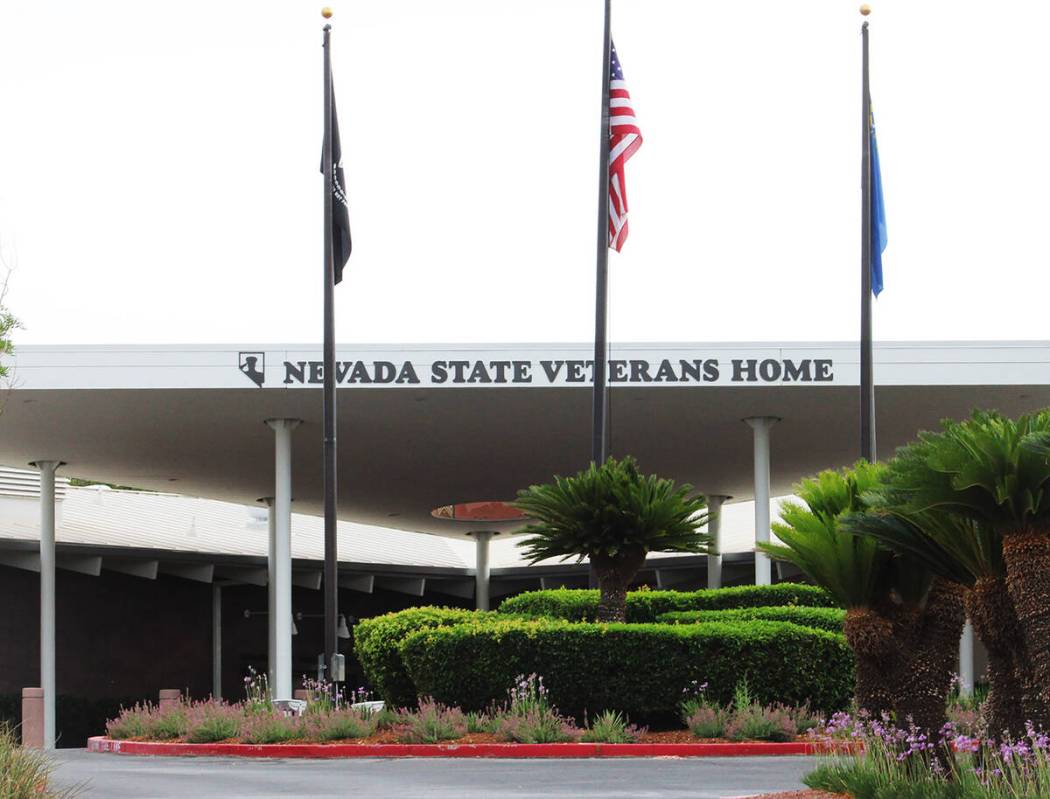
Documents provided to the Boulder City Review by the Centers for Medicare and Medicaid Services (CMS) appear to back up many of the accusations leveled at the Nevada Department of Veterans Services (NDVS) and leadership of the Southern Nevada State Veterans Home which is located in Boulder City by current and former employees over the past year. Many of the same issues were also noted by CMS surveyors in an inspection of the home that occurred in January.
The documents were received in the hours just before the Review’s ready-for-press deadline, meaning that only a cursory review was possible before this issue went to press.
Specifically, the deficiencies noted by CMS include items such as an accusation of abusive behavior towards a resident by Pavlow that resulted in NDVS Deputy Director Mark McBride initiating a formal investigation as well as finding that regulations were not followed in regard to the dispensing of narcotic and psychoactive drugs, deficiencies in infection control and failure to provide residents with warm meals.
Approximately two weeks before the CMS documents were received, the Boulder City Review received a tip referencing concerns raised in the most recent inspection of the facility and how those concerns may affect the status of licensed administrator of the home since mid-2023, Steven Pavlow.
The CMS does inspections, called surveys, of nursing homes that receive federal funding via Medicare or Medicaid payments. These surveys can result in a “statement of deficiency” if any issues are found. Those deficiencies are then addressed in a “plan of correction.” According to multiple sources at SNSVH, surveyors for CMS spent an extended period of time in the home in January. According to Hendry, the most current survey has not yet been completed.
Multiple attempts to verify the tip about Pavlow’s status through official channels have been met with silence or references to employee confidentiality.
However, four phone calls over as many days seeking to speak with Pavlow at the home were all answered with a reply saying that he was not in the building. In several cases, the Review was forwarded to voicemail for the executive secretary who did not return calls. In one case, the call was forwarded to current Director of Nursing Corine Watson who also did not return the call.
Additionally, current staff members reported that McBride told leadership at the home that they were not allowed to have cell phones in meetings, that no meetings could be recorded and that anyone giving any information to anyone outside of the building would be terminated immediately.
As previously reported, McBride was the administrator of the SNSVH in 2015. He left in October of that year, telling the Review, “While I have enjoyed leading the Nevada State Veterans’ Home this past year, it was my decision to resign my appointed position and return to the private sector.”
A couple of months after McBride’s resignation, it was revealed that the family of Charles Demos had sued the state after Demos died as a result of contracting Legionnaire’s Disease at SNSVH during McBride’s tenure there. In 2017, the state paid out $750,000 to settle the family’s legal action.
McBride was hired by NDVS as the deputy director with responsibility for the veterans’ homes in Boulder City and Reno about two months before Wagar was reportedly dismissed by Lombardo.
NDVS spokesperson Terri Hendry, in an email response to a request for information about Pavlow’s status said that “due to personnel confidentiality, we are not able to address personnel issues.” When presented with a followup request for the same info citing the Nevada Open Records Act and asking for NDVS to cite specific law if denying the request, Hendry replied via email saying “We have said all we are allowed to say regarding personnel issues.” She did not cite specific statutory authority for denying the information request.
Addressing the reports of threats to fire staff, she wrote, “Providing confidential information or information that is not public record, up and to include information protected under HIPAA, is in violation of existing state or federal rules, policies, and in some cases, the law. This is outside the scope of ‘whistleblower protections’ and has nothing to do with ‘whistleblower protections.’ We are addressing confidential, not public information, and we hope you understand the distinction and difference.”
Hendry continued by questioning the accuracy of the tip and wrote, “At no time, neither currently nor in the past, has the use of cell phones or recording of meetings been prohibited, so long as it complies with Nevada law. What has been discussed is that an employee could be subject to progressive discipline if confidential information, or information that is not available to the public, is shared with third parties or outside sources, in violation of existing federal or state rules, policies, and law. This is not new and is again in accordance with existing state and federal rules, policies, and law. NDVS is obligated to follow the law.”
In addition to requesting information from Hendry multiple times, the Review has reached out to the media contact for the Bureau of Health Care Quality and Compliance (this is the state agency that licenses all health care facilities in Nevada). Education and Information Officer Nathan Orme said, in an email, “The Division of Public and Behavioral Health has no information about any employee suspension that may have occurred.”
Multiple requests for information from press contacts for the Nevada attorney general and Governor Lombardo have gone unanswered and unacknowledged.
This is a developing story and additional information will be published in the Boulder City Review as it becomes available and after the CMS documents have been thoroughly reviewed.